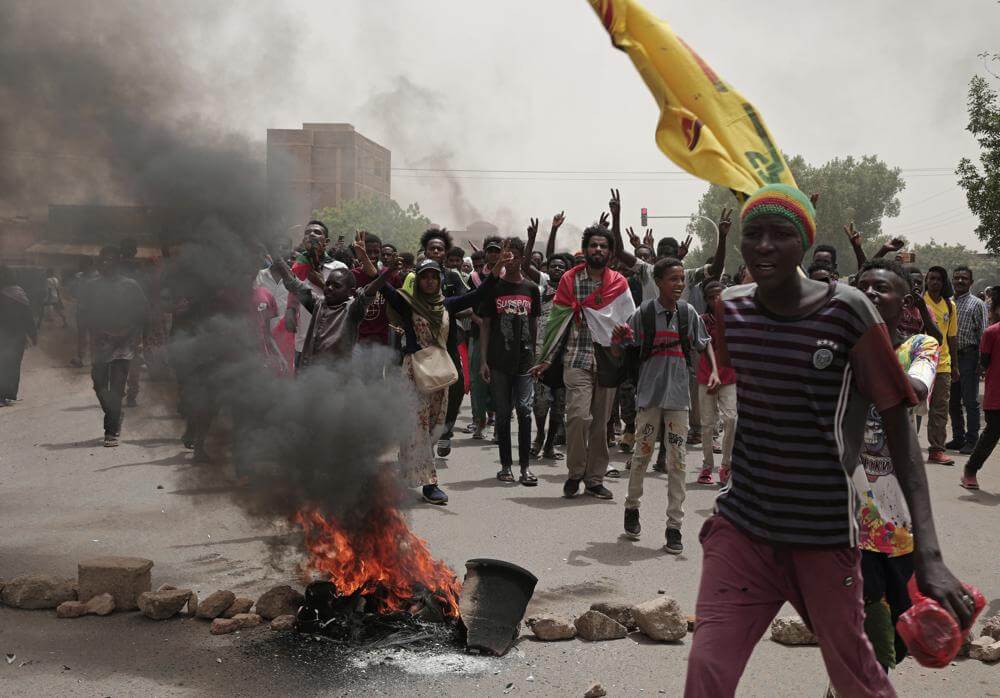The World Health Organization (WHO) issued a warning of a “high risk of biological hazard” in Sudan’s capital Khartoum after one of the warring parties in the conflict seized the country’s National Public Health Laboratory. The lab contains samples of diseases like measles, cholera, and other hazardous materials, giving rise to an “extremely dangerous” situation.
Overview
Dr Nima Saeed Abid, a representative of the WHO in Sudan, said on Tuesday that “one of the fighting parties” had taken over the central public health laboratory in Khartoum and “kicked out all of the technicians.” He did not specify which fighting party had done this.
In a statement to CNN, the WHO stated that “trained laboratory technicians no longer have access to the laboratory” and that “it is not possible to properly manage the biological materials that are stored in the laboratory for medical purposes.”
The WHO also noted that the facility has had power outages. According to the laboratory’s director-general, the power outages also pose a danger of spoiling or depleting blood bag inventories.
According to a medical source, “the danger lies in the outbreak of any armed confrontation in the laboratory because that will turn the laboratory into a germ bomb.”
Declining Civilian Conditions in Sudan
According to the Sudanese Health Ministry, 459 people have died, and 4,072 have been injured as of Tuesday.
The UN refugee agency claimed thousands of people had already escaped the violence, and that up to 270,000 people were expected to leave Sudan for neighbouring Chad and South Sudan. According to Laura Lo Castro, the agency’s representative in Chad, 20,000 refugees have arrived since the conflict began ten days ago.
The fighting has shut down hospitals and other vital services, leaving many people isolated in their homes with decreasing food and water supplies. Since the fighting started, the WHO has documented 14 attacks on medical institutions and is moving its workers to safer areas.
"High risk of biological hazard" at seized lab in Sudan, WHO warns https://t.co/RB241vVEIm
— BBC News (World) (@BBCWorld) April 25, 2023
Three-Day Ceasefire
US Secretary of State Antony Blinken stated that the Sudanese Armed Forces (SAF) and the Rapid Support Forces (RSF) agreed to a 72-hour national ceasefire at midnight on 24 April. Governments worldwide are stepping up efforts to evacuate their citizens from the country during this window of opportunity.
The RSF announced their acceptance of the ceasefire in a written statement on Monday, claiming that it had done so “in order to open humanitarian corridors, facilitate the movement of citizens and residents, enable them to fulfil their needs, reach hospitals and safe areas, and evacuate diplomatic missions.”
Crisis in Sudan
Sudan has descended into deadly conflict due to a power struggle between Abdel Fattah al-Burhan, the head of the SAF, and Mohamed Hamdan Dagalo, also known as “Hemeti,” the commander of the paramilitary RSF.
Huge public protests in 2019 called for the restoration of democracy and the termination of President Omar al-Bashir’s almost three-decade dictatorship. Subsequently, a joint military-civilian government was formed, but it was deposed in another coup in October 2021 when Gen. Burhan seized command.
At present, after several days of tension, as RSF personnel were redeployed around the nation in a move that the army perceived as a threat, the shooting started on 15 April, and the violence swiftly spread to other areas of the nation.
Dagalo said that Gen. Burhan’s regime was of “radical Islamists,” and that the RSF was “fighting for the people of Sudan to ensure the democratic progress that they have long yearned for.”
Gen. Burhan has stated that he favours reverting to civilian authority, but only to an elected government.

